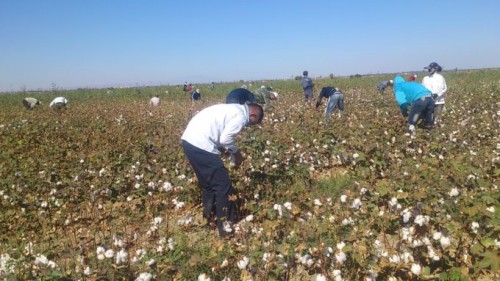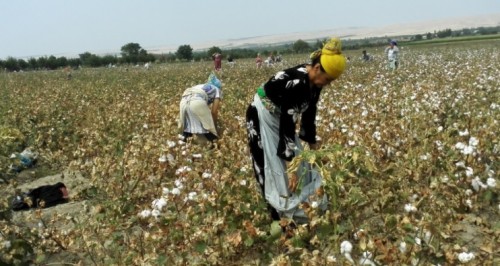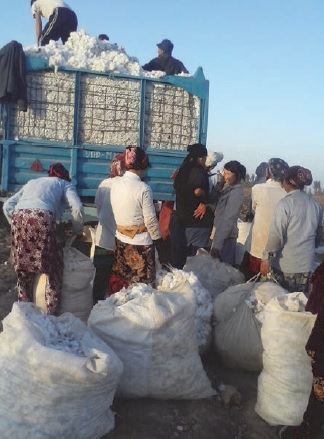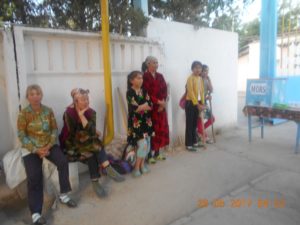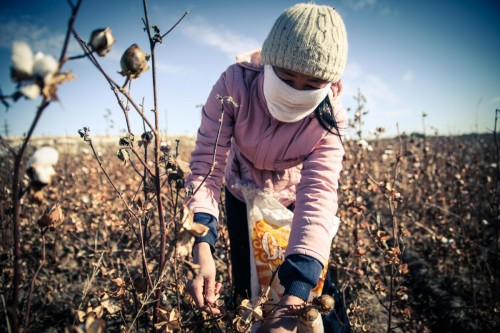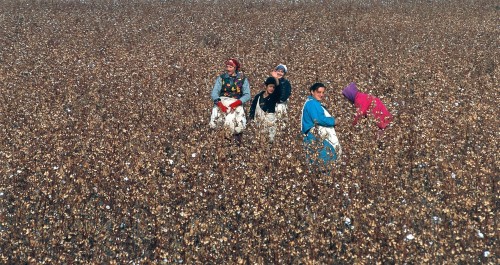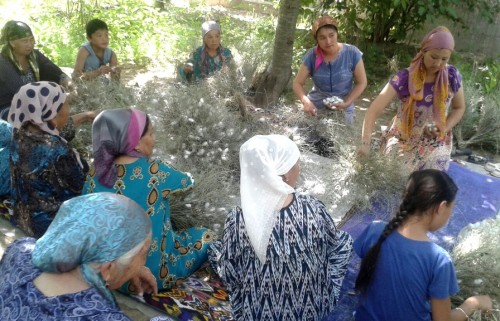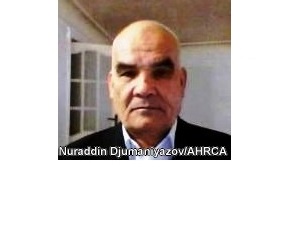Countries
Solidarity campaigns
13 August 2024
Georgia: Support striking workers at Evolution Gaming
5 June 2023
Georgia: Justice for Wolt couriers
10 May 2023
Belarus: Trade union activity is not extremism!
2 November 2019
Kazakhstan: Trade unionist Erlan Baltabay imprisoned - again!
19 November 2018
Kazakhstan: Stop repression and physical attacks on leaders of independent unions; hands off Larisa Kharkova, Erlan Baltabai and Dmitriy Senyavskiy
18 April 2018
MALOKHAT STILL NEEDS YOUR HELP
News
12 September, 2017 / uzbekistan
Uzbekistan Reducing Cotton Fields But Forced Labor Remains
Uzbekistan is cutting back on its cotton cultivation to make way for fruit and vegetable fields. While that happens, however, the custom of forcing state workers to pick cotton is proving hard to abandon.
02 August, 2017 / uzbekistan
A Peek Behind the World Bank’s Mask
On June 27 we released a joint report documenting forced and child labor linked to the World Bank’s agriculture projects in Uzbekistan. We hoped it would cause bank officials to rethink their approach. But then the bank’s country team inadvertently left an internal conversation on our voicemail. Oops! It revealed their ultimate goal: to protect the bank from external pressure and get new agriculture projects through their executive board “unscathed,” as one of the voices on the phone said. He went on: “We want to avoid any more stuff that goes out that says ‘oh and look [a board member is] really taking this seriously, now they’re going to call for a full board hearing.”
31 July, 2017 / uzbekistan
Document of Evidence: Public Sector Employees in Samarkand Massively Mobilized to Carry out Reconstruction Works
On July 29, the popular Uzbek news website www.kun.uz published an article written by the journalist Tura Murod, who had recently been fired for criticizing the massive mobilization of teachers for mandatory “public” works and such as cleaning the streets, weeding and picking cotton, as well as repairing and constructing public buildings.
31 July, 2017 / uzbekistan
Human rights organisations and ILO experts confirm the mass use of forced labour in the cotton industry of Uzbekistan
The infamous forced labour practice in Uzbekistan is still widespread. Two detailed reports on the subject have been released at the same time in July. The 115-page report “We can’t Refuse to Pick Cotton. Forced and Child Labor Linked to World Bank Group Investments in Uzbekistan”
28 July, 2017 / uzbekistan
Head of District Educational Department: “Teachers, not the farmers need the cotton”
On 21 July 2017, the Uzbek website www.sof.uz posted the audio recording of a meeting of school directors and heads of kindergartens held at the Uzbekistan District Education Department in the Fergana Region. [The meeting was recorded covertly and sent to the local journalists].At the meeting, the head of the Uzbekistan district Education Department in the Fergana region Nafisa Nishonova told the teachers that agricultural issues had priority.
28 June, 2017 / uzbekistan
Uzbekistan: Forced Labor Linked to World Bank. Systematic Violations Underpin Country’s Cotton Sector
(Brussels) – The World Bank is funding half a billion dollars in agricultural projects linked to forced and child labor in Uzbekistan, Human Rights Watch and the Uzbek-German Forum for Human Rights said in a report released today. Under the loan agreements, the Uzbek government is required to comply with laws prohibiting forced and child labor, and the World Bank can suspend the loans if there is credible evidence of violations.
28 June, 2017 / uzbekistan
World Bank funds linked to forced labour in Uzbekistan
Report by human rights groups says Bank-funded projects in the country’s cotton industry are using child and forced labour. The Bank refutes the allegations
20 June, 2017 / uzbekistan
Uzbekistan: The Hard Labor Behind Soft Silk
As has always happened at the end of every May, Nasiba Barkasheva’s home burst with frenetic activity as the silkworm cocoon harvest reached its conclusion
19 June, 2017 / uzbekistan


